UCPI Daily Report, 10 Nov 2020
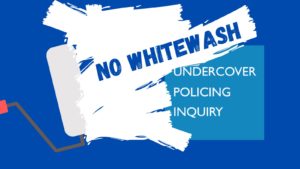 Tranche 1, Phase 1, Day 7
Tranche 1, Phase 1, Day 7
10 November 2020
Evidence from:
Imran Khan QC (Baroness Doreen Lawrence)
Heather Williams QC (Neville Lawrence OBE)
Imran Khan QC (Michael Mansfield QC)
Andrew Trollope QC (Azhar Khan, Miscarriages of justice)
Dave Morris (Social & environmental activists, [appearing in person])
Imran Khan QC (The Monitoring Group, Justice campaigns)
The final scheduled day of opening statements at the Undercover Policing Inquiry was centred around the moving stories of people who were spied on as part of justice campaigns. These are mostly families whose loved ones have died at the hands of the police, or whose deaths had investigations that were scandalously inadequate.
Several themes recurred from the spied-upon:
- the need for the Inquiry to centre their experience and knowledge;
- not taking police statements at face value;
- the need for a diverse panel to advise a rich, white, male Chair who cannot properly understand systemic discrimination;
- the need for live-streaming the hearings to stop it being a private inquiry, which is being done by other inquiries.
All of it seemed to bounce right off Sir John.
Neither Helen Steel (delayed from yesterday), nor Dave Smith’s statements (delayed from Friday) have been allotted new dates as yet.
Imran Khan QC
(Baroness Doreen Lawrence)
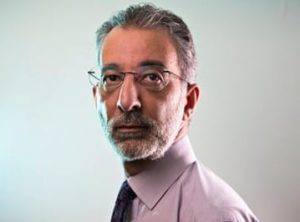
Imran Khan QC
Imran Khan opened proceedings, representing Baroness Lawrence, campaigner and mother of murdered teenager Stephen Lawrence.
Khan stated that Baroness Lawrence has lost confidence in the ability of the Inquiry to get to the truth of why her family was spied upon. She is also disappointed with the Metropolitan Police’s statement that they have undergone a substantial change in their. She thinks the Met remains institutionally racist.
Ethnic minority people are over policed and under protected. This is illustrated by disproportionate use of stop and search against young Black people today.
The 1998 Macpherson inquiry into Stephen Lawrence’s death should have been the end of it. The Met claimed to have already given all evidence to Macpherson. This was a bare-faced lie.
CORRUPTION AND LIES
In 2012, it was reported that there was detailed evidence of one of the investigating detective’s criminality that was held back from the public, the Lawrence family’s legal team, and the Macpherson inquiry. These revelations led to the Ellison Review, which also found spycops had targeted the Lawrences.
Khan then outlined the well-known background of the murder of Stephen Lawrence and the incompetent and corrupt police investigation that followed. Stephen Lawrence was murdered at just 18 years old in 1993 in South London whist waiting for a bus. Justice was slow and by no means reached. Baroness Lawrence still mourns the death of her son.
Khan said that the same racism that led to the murder of Stephen and let his killers walk free, still exists. All the police involved with the botched initial investigation were promoted or have since retired, not one of them has been disciplined, let alone sacked.
Baroness Lawrence said:
‘To lose a child is unthinkable. To be fighting for justice for him 27 years later is inexcusable’.
Five years later, in 1998, Macpherson made his findings, which included the fact that police attending to the scene of Stephen’s murder did nothing to try to save him. Khan says it seems ‘the police did not want to get their hands dirty with a Black man’s blood’.
SPYCOPS DIGGING FOR DIRT
In 2013, they learned that police spied on the family’s campaign and ‘sought dirt’ to discredit them and their supporters. Undercover officer Peter Francis said he was just one of four officers tasked with doing so. However, the Lawrence family were law abiding, so there was no dirt for the undercovers to find.
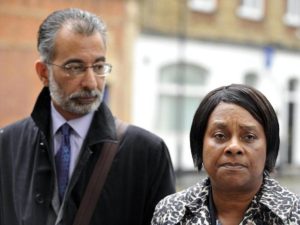
Imran Khan QC & Baroness Doreen Lawrence
Francis was then tasked to find dirt on people more peripheral to the campaign, using names passed on by the family liaison officers purportedly supporting the family. The police officer referred to as HN78 (‘Bobby Lewis’), interviewed in the Ellison Review, and picked up information on the Lawrence campaign.
The Lawrence family’s campaign was one of many such family justice campaigns targeted by undercover police. Police resources that should have been spent catching killers were instead used to obstruct justice in this way.
The Lawrences then wrote to the Home Secretary saying the Met hadn’t given a satisfactory explanation about the allegations of spying. They asked for a public, transparent inquiry. Home Secretary said no, unless the Ellison report recommended it. The report, when it came, did indeed recommend a public inquiry.
Baroness Lawrence said that a public inquiry was the only way to conduct a satisfactory investigation as internal police investigations cannot be trusted. Khan went on to outline the various investigations conducted – and the broken promises made by the police.
The Home Secretary finally ordered the undercover policing public inquiry in 2014, remarking that ‘it is deplorable the family have had to wait so long’. The irony isn’t lost on core participants, finding themselves nearly seven years later at the very start of an Inquiry that has swathed itself in secrecy.
HOLLOW PROMISES
In 2014, the Met Commissioner said all material about the spying on the family would be released. The Lawrence family have received absolutely nothing since then. They still don’t know why they were spied on. Should the police have given these files to the Inquiry in the meantime, Baroness Lawrence wants them to be handed over to her now.
Baroness Lawrence is exhausted by decades of hollow, hypocritical promises that are never delivered on. She wants to know the extent to which the Met’s Commissioner at the time, Paul Condon, knew about, or authorised the spying on the her family. On the one hand, she has been told there was no direct spying, yet on the other the Met have already apologised for it – what is the truth?
The culture of the police has played a part in creating miscarriages of justice and covering up racism. Public apologies aren’t matched by real reform. For instance, the one whistle-blower, Peter Francis, still faces the threat of prosecution for coming forward. While Francis’ spying was reprehensible, the Met’s intransigence and denials are much worse. He must be be given the assurances he seeks about immunity from prosecution.
JUSTICE DELAYED, JUSTICE DENIED
It is 27 years since Stephen’s murder, yet the senior police officers involved in the investigation were only referred for the possibility of misconduct charges last week.
Baroness Lawrence trusted Mark Ellison’s investigation as he’d secured the convictions of two of Stephen’s killers. His recommendations were clear. In contrast, she said, although the Undercover Policing Inquiry was supposed to be a ‘proper, transparent inquiry, rigorous in pursuit of the truth’ it has turned out to be secretive and ‘we should be able to see every officer who chose to spy on us’.
Khan contrasted the open way that Baroness Lawrence campaigned, despite hostility from the police with the anonymity granted to the police. She didn’t have the luxury of hiding, so neither should the undercover police. The Met, unless forced to do otherwise, will seek to avoid accountability and hide evidence. They can’t be trusted to simply offer it up to the Inquiry.
DIVERSITY OR FAILURE
The Macpherson Inquiry only succeeded with the help of a diverse panel advising. Khan also explained the vital context of the racism surrounding the spying. If the Chair doesn’t understand this, then surely point Baroness Lawrence makes is proven: a diverse panel is therefore needed.
The idea that the Special Demonstration Squad operated lawfully and in the public interest is nonsense. Clearly, there is no good reason to spy on any of Baroness Lawrence’s campaigning.
Khan concluded: ‘We must have the truth’, and then quoted Baroness Lawrence:
‘I was a happy married woman with three gorgeous children. Now I have lost a son and I am divorced, but that’s only a tiny part of what has changed. Unless you’ve lost a child you can’t understand the depth of heartache I’ve felt… and would give up all I have to go back to the seconds before Stephen died. I simply ask for justice’.
The accompanying written opening statement from Imran Khan QC on behalf of Baroness Doreen Lawrence
Heather Williams QC
(Neville Lawrence OBE)
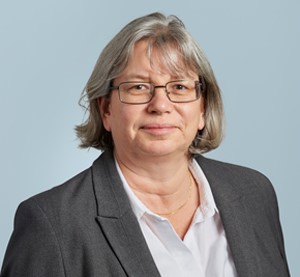
Heather Williams QC
Heather Williams opened by saying why she was here and, in a sense, why we were all here.
On 22nd April 1993 Stephen Lawrence was murdered by racists in Eltham while waiting for a bus. He was stabbed by a gang of white youths who used racist language. The initial murder investigation was completely inadequate; during it Dr Lawrence felt as if he was in a constant battle with police.
The Macpherson Inquiry decided that institutional racism was apparent in the police investigation into Stephen’s death and in his family’s treatment by officers. These failings meant that Stephen’s killers largely escaped justice.
This has impacted on all of Dr Neville Lawrence’s life. As the Macpherson Inquiry demonstrated, the police were not on their side. Despite that Inquiry’s historic recognition of institutional racism in the police, Dr Lawrence believes too little progress has been made. He feels the state has failed him.
Against this background, the allegation of police interference with his family has only further undermined his confidence in the police. Intelligence on Dr Lawrence was passed up the chain of command by police, and an undercover officer attended the Macpherson inquiry pretending to be a supporter of the family. The existence of this was also kept secret from Lord Macpherson.
How then can the public have confidence in policing of Black communities if resources are used like this against them? It appears to many that Black lives don’t matter to the police.
LONG TERM SPYING
Williams made it clear that Dr Lawrence doesn’t have confidence in the Inquiry. He wanted to participate in an inquiry capable of finding the truth and stopping these abuses from being repeated in the future. However, he, like so many victims of spycops, has had almost no disclosure of documents.
The Met didn’t just spy on the Lawrence family’s campaign in the immediate aftermath of the murder. Five years later, as the Macpherson Inquiry was heading towards its conclusion, the Met had a spy in the Lawrence family camp – a Special Demonstration Squad (SDS) officer using the name Dave Hagan.
The undercover officer met with Richard Walton who was part of the team who were providing the Commissioner’s response to the Inquiry, feeding them information on the family’s thinking. That meeting was brokered by SDS boss Bob Lambert.
In 2013, we learned from whistle-blower SDS officer Peter Francis that undercover police had targeted Black justice campaigns, including the Lawrences. Alongside that, the family liaison officers were gathering intelligence rather than concerning themselves with the welfare of the family.
However, it was not until 2016 that the truth about undercover police undermining the Macpherson Inquiry was revealed. Walton, by then, was running spycops operations as the head of Counter Terrorism Command. Like many guilty police officers who find themselves under investigation, he resigned to avoid disciplinary charges.
A SPY IN THE FAMILY CAMP
A document from the foundation of the SDS in 1968 says the unit was created to provide information on public order, and related intelligence. Twenty years later it said it was concerned with terrorism and politically motivated crime. Whichever, the grieving, devastated Lawrence family fell under none of these categories. Therefore there was no excuse for snooping around the Lawrences, whether directly or otherwise.
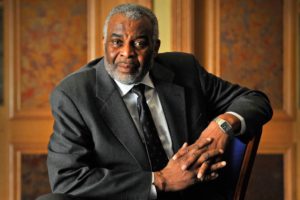
Neville Lawrence
And yet, undercover police were circling the Lawrence family, looking to smear them instead of catching their son’s killers. Macpherson found the Lawrences were treated unfavourably because of their race. The 2014 Stephen Lawrence Review by Mark Ellison QC discovered undercover officer ‘Dave Hagan’ spied on the family campaign at a time when the family was taking legal action against the police. Hagan reported back personal details as well as the Lawrence family’s campaign strategy.
The police’s self-investigation into undercover policing, Operation Herne, started in 2012. Its 2014 report centred on allegations of spying on Lawrences. Like Ellison, they did not find ‘smoking gun’ documentation proving that there was an instruction to spy on the Lawrence family. But, in a unit where creating written evidence was often avoided, we cannot rely on documents. The Inquiry must rely on oral evidence.
SDS officers routinely ‘hoovered up’ all knowledge and retained it, ignoring issues of privacy, the third Operation Herne report was published in 2014. Numerous undercovers have confirmed they received no training on collateral intrusion and that they took no account of the issue.
A 2016 Independent Police Complaints Commission report said Lambert and Walton would face disciplinary charges if they were still serving. It was at this point that Lambert finally resigned from his academic posts. Walton is now working for an opaquely funded right-wing think tank that calls Extinction Rebellion extremists.
WHEN WILL WE GET THE TRUTH?
It’s plain there was no legal authority or justification for the intrusion on the Lawrence family. And, nearly seven years in, we’ve had almost no information from the Inquiry. It appears to have done nothing significant towards its purpose. Dr Lawrence has received no substantive disclosure.
The delays to the UCPI have increased the distress of victims. We are promised disclosure will happen, at an unspecified time, but we cannot properly contribute until that is done.
Dr Lawrence wants to know the full extent to which undercovers spied on him at the time of Stephen’s death and afterward. He has many questions that he wants the Inquiry to answer. He does not think a white family in the same position would have been treated this way.
Williams went on to say that the Ellison Report only focuses on 1993 and 1998, which missed out the period in between, including the time of Stephen’s inquest. This also leaves questions to be answered. For instance, why was Dave Hagan allowed to befriend the family and attend the Macpherson inquiry?
Further, what did Hagan tell Walton at the 1998 meeting? Was this information used at the Macpherson inquiry? Who else saw it? Who knew about the meeting? Lambert was Hagan’s handler, speaking to him several times a day. Dr Lawrence also wants to hear what he has to say, as well as Hagan’s other managers.
DON’T TRUST THE PREPETRATORS
Due to the police’s tendency to destroy records, the Inquiry should take control of all documents rather than trusting the police not to pre-sort the files to avoid incriminating themselves. Williams then went on to speak of Neville’s concern about particular officers being granted anonymity. These are HN109 who was Peter Francis’ manager, HN101 who was also involved in his tasking, HN86 the SDS boss 1993-1996 who gave the order to find dirt on Lawrences, and HN58, the boss 1997-2001 so who will have known about the 1998 meeting with Walton.
Heather Williams made the point that almost all non-state core participants have been making since the Inquiry began: if you give a spied-upon person a cover name, they are more likely to be able to give evidence about that person, but with just a number that is impossible and we only get the officer’s own account.
Williams then quoted Lord Bingham, a senior member of the judiciary: ‘Publicity is a powerful disinfectant’.
Beyond the secrecy, Dr Lawrence is, like Baroness Lawrence, particularly concerned by the lack of a diverse panel in the ‘fact-finding’ part of the Inquiry as well as the anonymity given to the undercover officers.
Where there’s evidence of racism, police must be held to account through the legal system if there’s to be any confidence in that system. Dr Lawrence has been failed badly by institutions over the years, and hopes that he will not be failed again at the Inquiry.
The accompanying written opening statement from Heather Williams QC on behalf of Neville Lawrence OBE
Imran Khan QC
(Michael Mansfield QC)
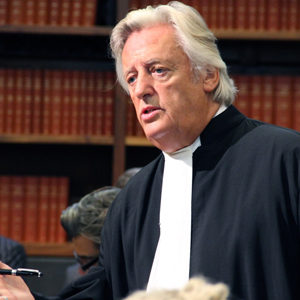
Michael Mansfield QC
The Inquiry continued with the return of Imran Khan QC, this time speaking for Michael Mansfield QC, who a a core particpant due to his role as a lawyer representing the family of murdered teenager Stephen Lawrence.
Khan started with reference to the situation today, saying the State acts with increasing hostility towards the legal profession, with sneering from the Prime Minister about ‘lefty human rights lawyers’ who are ‘hamstringing’ the criminal justice system.
The Home Secretary dismissed lawyers objectións to her similar comments, saying they should ‘get back to work’, even though she was actually objecting to their work.
When the State appears to be having a wholesale attack on lawyers, there are grave consequences.
Khan said:
‘It is chilling to consider that lawyers might have failed to take on cases or acted otherwise in accordance with their duty, in the knowledge that they might attract the unwanted attention of the State and its institutions.’
Mansfield wonders if we’re in an era where the legal profession is imperilled. The State has always tried to silence critics, but the scale of it varies and this moment is especially precarious.
MICHAEL MANSFIELD’S CAREER
Michael Mansfield has long been targeted by undercover police, as he has represented people perceived as a threat since the early 1970s, such as the Angry Brigade.
He continued to represent people who suffered at the hands of the police, e.g. (with Gareth Peirce) the Birmingham 6, families at the Bloody Sunday Inquiry, and the families of Jean Charles de Menezes, Pat Finucane and Stephen Lawrence. Among his clients are Ricky Reel’s family, who were targeted by spycops while Ricky’s killers walk free.
If you don’t have lawyers who are willing and able to challenge the State, you remove the right to challenge at all. Yet lawyers that bring such challenges are subjected to attacks and undercover operations.
The United Nations Basic Principles on the Role of Lawyers say that states must ensure equal access to lawyers of people’s choosing, who must be able to work without intimidation or hindrance.
Undercover surveillance of Mansfield had no justifiable reason. There was no ‘public order’ or ‘public interest’ justification, and no criminality. However, if state sanctioned tactics of unlawful surveillance were designed to intimidate lawyers such as Mansfield, they failed.
LOW EXPECTATIONS OF THE UCPI
He does not have high hopes of this Inquiry, as it is held under the Inquiries Act 2005. Mansfield scathingly descibes the Act as ‘legislation that serves to undermine the rule of law, erode protection of human rights, shake public confidence, and lessen further the independence of the judicial and legal system.’
Furthermore, it was not properly debated, it repealed earlier, more effective laws, and it does not allow parliamentary scrutiny of Inquiry decisions. Also, arbitrary appointments mean such inquiries are never truly independent.
Similarly hasty and equally egregious is the CHIS Bill currently being rushed through Parliament will allow any state agent to be authorised to commit any crime, it’s an open invitation to damage and destroy lives.
RECOMMENDATIONS NOT ACTIONS
In conclusion, Michael Mansfield takes on cases that are uncomfortable to the state, but this should have no bearing on how he is treated. A lawyer is a lawyer. Mansfield is just one of many who have been spied on. This Inquiry must find out the full extent, why it was done, and who authorised it. Mansfield wants a sincere apology to him and to the other core participants.
There is a huge risk that the police will just ignore what they see as yet another set of recommendations. So many hard-won inquiries are just left to gather dust in the Home Office. If the Inquiry fails in this, fear and intimidation could replace fearlessness among lawyers, and we would lose the capacity for challenging state wrongdoing.
Mansfield will not go away quietly. He is clear that for an Inquiry to have real purpose it not only needs powerful and far-reaching guidelines and recommendations, but also their effective implementation. We must criminalise unjustified surveillance of lawyers.
The accompanying written opening statement from Imran Khan QC on behalf of Michael Mansfield QC
Andrew Trollope QC
(Azhar Khan, Miscarriages of justice)
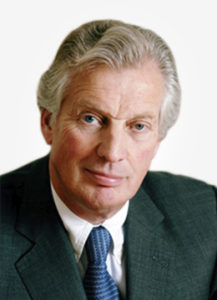
Andrew Trollope QC
Before lunch, the Inquiry heard from Andrew Trollope QC on behalf of Azhar Khan, a solicitor who was targeted by undercover officers and wrongly prosecuted.
In 2007, the Metropolitan police conceived a covert ‘sting’ operation, culminating in the arrest of Azhar Khan for conspiracy to pervert the course of justice. This new and unique operation went beyond covert surveillance, and was a plan for undercover officers to pose as potential criminal clients in order to set him up.
SPYCOPS ENTRAP A SOLICITOR
Azhar Khan began his own solicitor’s practice in 2005, one of the few BAME lawyers to do so.
Settled in a deprived area’of London, he served important local needs, doing mostly legal aid defence work and working for local charities as well. He also worked to encourage BAME men and particularly women to get ahead in the profession.
For some reason police took exception to his work and launched Operation Castration or Castrol. This involved undercover officers posing as criminals to become his clients over a sustained period in order to try to induce him to commit crime. They would have themselves arrested as drug dealers or money launderers then request Khan as their lawyer. The ‘suspects’ were then released on bail.
This sting operation lasted 18 months and involved four spycops and the complicity of six other officers who made the staged arrests, as well as senior officers who reviewed the operation.
Khan’s ‘clients’ offered him the opportunity to launder £50,000, which he refused. They also showed him big bags of tablets, supposedly drugs, offering them to him. Posing as someone from organised crime, one of them kept ringing Khan, seeking meetings and repeatedly tried to lure him into criminal deals.
NO EVIDENCE
By September 2009, there was no evidence of wrongdoing at all. The officer in charge wanted to end the operations. But the spycops trying to dupe Khan said they’d had a meeting where he’d agreed to a crime – this was a complete lie – which led to a renewal of the authorisation.
The spycops were persistently trying to trap Khan into committing crime for a very long period of time, in the face of his impeccable integrity. There were no real grounds, nothing even alleged, that could justify it. It was plainly illegal.
At no stage did Khan agree to any of the various crimes they offered. Nonetheless, police raided his home and office in December 2009, charging him with conspiracy to pervert the course of justice.
The police later conceded that the staged arrests and procedures at the police stations were designed to deceive Azhar Khan in the course of his professional practice, in order to try and find evidence of criminal conduct by him.
ABUSE OF PROCESS
The objective of the operation was not to investigate any crime of which Azhur Khan was suspected. Rather, it was to ‘integrity test’ his conduct as a criminal defence solicitor by using undercover officers to suggest the commission of crimes to see how he would react’. Over and over again.
Trollope explained that ‘no evidence of any offence on the part of Azhur Khan was gleaned. The clear aim was to put him and his practice City Law Solicitors out of business.’
He continued, ‘one of the most legally and morally objectionable features of the operation was that these attempts were so persistent in the face of Azhur Khan’s repeated failure agree to the suggestions of crime.’
Eventually, the case was thrown out of court, the judge ruling it was abuse of process with no case to answer.
A RACIST OPERATION
The very basis of the operation was racist. As an Asian lawyer, it seems he was singled out in a way that would never have been done if he were white. All the undercover officers in the operation were BAME. Did they think Khan would be more liable to commit crime with them?
Where did they get the idea from? Who else has been treated this way? Which other officers might have given them tactics and advice?
This was spycops acting as agents provocateur, for a long period, against someone for whom there was no evidence of corruption. Khan was a victim of a miscarriage of justice. The Inquiry must find the full extent and justifications of this operation.
The accompanying written opening statement from Andrew Trollope QC on behalf of Azhar Khan
Dave Morris
(Social & environmental activists, [appearing in person])
Dave Morris has been a community and political activist for nearly 50 years. He’s best known for being one of the defendants in the ‘McLibel’ Trial along with Helen Steel, but his work encompasses many more issues beyond that.
Just as at the McLibel trial 30 years ago, he has no lawyer covering that period at the Undercover Policing Inquiry and is instead speaking for himself.
Morris opened by outlining his anarchist, workplace, environmental, community, and other activism.
In the 1980s, he was involved in London Greenpeace (a small collective founded in 1971, independent from the later-formed Greenpeace International) which was infiltrated by undercover officers from the Special Demonstration Squad (SDS).
The group began a publicity campaign focused on McDonald’s as an example of what all transnational corporations are doing – opposing their environmental destruction, promotion of junk food, treatment of workers, abuse of animals, exploitation of children, and more. They produced a leaflet called What’s Wrong With McDonald’s. The burger giant sued for libel, presumably expecting them to back down. It was a drastic misjudgement.
McLIBEL
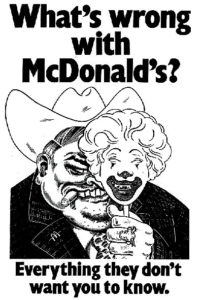 What happened next was the stuff of fiction. Steel and Morris couldn’t afford lawyers and represented themselves in court (assisted behind the scenes by a young barrister prepared to work for free called Keir Starmer) against a large McDonald’s legal team led by a QC charging £2,000 a day. McDonald’s had objected to the whole leaflet, so Steel and Morris had to defend every word. It became the longest trial in English history. In the end there were a number of damning judgements against the fast food giant, and versions of the leaflet were being handed out in millions all over the world.
What happened next was the stuff of fiction. Steel and Morris couldn’t afford lawyers and represented themselves in court (assisted behind the scenes by a young barrister prepared to work for free called Keir Starmer) against a large McDonald’s legal team led by a QC charging £2,000 a day. McDonald’s had objected to the whole leaflet, so Steel and Morris had to defend every word. It became the longest trial in English history. In the end there were a number of damning judgements against the fast food giant, and versions of the leaflet were being handed out in millions all over the world.
You can see more about the case in the McLibel documentary and at the campaign website from back in the day McSpotlight.org (which was one of the first of its kind in 1996).
The McLibel Support Campaign around the trial was also infiltrated by spycops. They didn’t know this at the time, so it never came up in court. The spycops weren’t just attending meetings, they played an active part. In 2011, Morris and Steel discovered that ‘Bob Robinson’, who had significantly contributed to the leaflet, was actually undercover police officer Bob Lambert.
PRIVATE SPIES
As well as undercover police infiltrating London Greenpeace, McDonald’s sent at least seven spies into the group, one of whom deceived a genuine member into a six-month relationship.
Sid Nicholson, McDonald’s Vice President and Head of Security, oversaw that spying operation. He’d come to the firm from being the former Metropolitan Police Chief Superintendant in Brixton, following a career in the police in apartheid South Africa. He had stated from the witness box that McDonald’s security department was wholly comprised of ex-police officers. Nicholson had admitted asking friends on the force for information on activists and having a two-way exchange, including home addresses, which was illegal.
Morris referred to footage, obtained from McDonald’s during the McLibel trial and shown in the McLibel documentary, of a London Greenpeace protest at McDonald’s HQ (East Finchley) in 1989. McDonald’s spy Michelle Hooker can be seen handing out anti-McDonald’s leaflets next to spycop John Dines, who scandalously developed a long, intimate relationship with Helen Steel. Sid Nicholson had testified that a Special Branch officer was given ‘a perch’ next to himself at the HQ to jointly observe that very protest in the film. It was later discovered that during the case, yet another spycop Matt Rayner also had an abusive sexual relationship with a woman living next door to Morris in Tottenham.
John Dines and Helen Steel lived together as a couple whilst she, Morris and Keir Starmer made pre-trial preparations. Dines then disappeared. How much privileged legal advice was Dines illegally privy to whilst living with Ms Steel, and what was passed on to McDonald’s?
Steel and Morris sued the Met for sharing their personal information with McDonald’s. The police choose to settle the case out of court, including apologising, paying compensation and committing to inform all London police officers not to do share confidential information to third parties.
The McLibel judgment found that McDonald’s had been responsible for industrial-scale breaches of employment laws and the welfare rights of animals. yet the people who were exposing this were the ones targeted by spycops.
In 2005, the European Court of Human rights found the McLibel case had violated their right to a fair trial and freedom of expression, and they were compensated by the British Government. The Court ruled:
‘The Government had contended that, as the applicants were not journalists, they should not attract the high level of protection afforded to the press under Article 10. However, in a democratic society even small and informal campaign groups, such as London Greenpeace, had to be able to carry on their activities effectively.’
Neither McDonald’s nor the police were ever held to account for any of this.
TARGETED FOR BEING PROGRESSIVE
Morris based most of the rest of his speech to the Inquiry on a statement on undercover policing signed by 90 of the Inquiry’s core participants, nearly half of all those in the non-police/state groups.
Since 1968, more than 1,000 groups campaigning in the UK for a better society and world have been spied upon and infiltrated, by secret unaccountable political spycops. They targeted a huge range of groups – environmentalists, trade unions, women’s rights, racial justice, LGBTQ rights, animal rights, as well as campaigning against war, corporate power, repression, and police brutality.
The groups represented in this Inquiry were not terrorists, but were pushing for positive social change in an overwhelmingly public and open way.
Many of the groups spycops targeted have been vindicated by history, their ideas have become mainstream orthodoxy, and some have resulted in legal and other formal recognition by society. Yet any group that challenged the established order seemed to have been deemed a legitimate target of the secret political policing units.
SPYCOPS’ CRIMES
Spycops weren’t merely observing, they infiltrated personal lives. Fake friendships were developed and exploited. Many people, especially women, were deceived into intimate and abusive relationships.
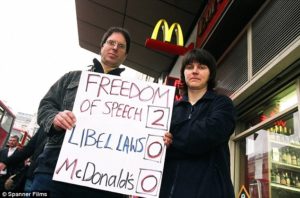
The McLibel 2: Dave Morris & Helen Steel [pic: Spanner Films]
Bugging a phone is recognised as a breach of human rights and police have to apply for a warrant. Spycops hacking people’s lives is infinitely worse and should be totally unacceptable to everyone.
Spycops weren’t aberrations or ‘rogue officers’. This spying was established and conducted with the full sanction of the state and supported by its apparatus and taxpayer funding.
By targeting such groups, spycops show institutional discrimination, racism, sexism and anti-democratic action, including industrial-scale breaches of laws and charters that protect basic human rights and the right to protest.
THE ‘THREAT’ OF SOCIAL JUSTICE, OR RETROSPECTIVE ‘JUSTIFICATIONS’ FOR SPYING?
If spycops are worried about political violence, why were fascists largely left to their own devices while we were spied on? The police plainly have political bias.
Why did the state see social justice as a threat to society? Why didn’t they put spycops into financial corporations, hedge funds, military elites, and power-mad establishment political parties? Such institutions employ and promote daily, mass institutional violence – war, poverty, exploitation of workers, colonialism and environmental destruction – reinforced by PR and manipulation of society for their own selfish ends. There’s your actual threat to public order and well being.
What should we count as ‘extremism’? The Climate Emergency, said Morris, is the most extreme threat we face. In 1968, the American Petroleum Institute commissioned scientists to investigate burning fossil fuels, they discovered ‘there seems to be no doubt that the potential damage to our environment could be severe.’ That was the same time spycops were set up. The oil industry has obstructed efforts to tackle it. Has the oil industry ever been targeted by spycops? If not, why not?
Morris however noted the public outrage at the beginning of 2020 over campaign groups being lumped in with fascist and other terrorist groups in police counter-terrorism documents. This included the Extinction Rebellion (XR) movement which had a few months earlier been blockading roads in central London for over a week calling for action to prevent climate catastrophe. In response to the controversy, the Minister for Security was forced to admit to Parliament that XR was not and should not be categorised as ‘extremist’. So just who are the real extremists?
Morris also tackled MI5’s seemingly dominant role over the secret police spying operations from the very beginning. He stated that MI5 was seeking information about, and the undermining of, groups and movements which are deemed to support ‘subversion of the State’. But Morris said they should look elsewhere – for the last 30 years mass subversion of the State, supported by successive Governments, has been systematically and continuously carried out by unaccountable multinational corporations seeking deregulation of laws protecting society from unrestrained profiteering, and taking over formerly nationalised industries and sectors so that a tiny few can profit from what were once State-run public services.
Adding insult to injury is the deliberate widespread use of ‘tax havens’ and other so-called ‘loopholes’ to annually avoid billions of pounds of taxes due to the State which could have been used for our struggling public services. Millions of people have suffered as a result. But have there been any undercover officers targeting of this serious, industrial-scale daily subversion of the State? He guessed never.
PROTECTING THE PERPETRATORS
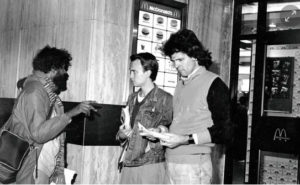
Spycop Bob Lambert (right) at McDonald’s handing out the McLibel leaflet he co-wrote, 1986
It took five years of spycops revelations – largely from victims’ own research – to get the promise of the public inquiry, and five more for it to begin. Police and the Inquiry have consistently refused to release lists of officers, or groups targeted, or relevant documents.
Victims of spycops are dismayed by the Inquiry’s prioritising of the protection of the perpetrators’ privacy above the right of victims and the public to know the truth.
As the people who brought this scandal to public awareness, we’ve worked hard to get the justice we and the public are entitled to.
We remain determined to bring the whole murky political policing operation into the public spotlight where it belongs.
DAMAGE LIMITATION
This is supposed to be a public inquiry, but it’s more like a police damage-limitation exercise. The hearings are not yet publicly accessible and nor will they be live-streamed, which is the only way to ensure the public and victims can follow it.
Morris endorsed the 13 recommendations from the People’s Public Inquiry into Secret Political Policing, Conway Hall, London in July 2018 which, among other things, call for the release of all officers’ names & political files, an admission of institutional discrimination, and the permanent disbanding of the political secret police.
Having covered so much nefarious activity, Morris ended on an optimistic note. Despite being undermined by spycops, movements for positive change are still here and have had many successes. Such movements are needed now more than ever. A better world is possible and it’s up to all of us to support – rather than pay spycops to undermine – efforts for real change.
The accompanying written opening statement from Dave Morris
Imran Khan QC
(The Monitoring Group, Justice campaigns)
Imran Khan QC then spoke for the Monitoring Group.
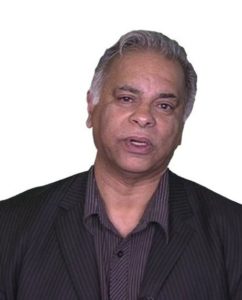
Suresh Grover, founder and director of The Monitoring Group
The Monitoring Group (TMG) was founded by Suresh Grover, who is still a co-director. It is one of the oldest anti-racist organisations in the UK, carrying out advocacy work and supporting struggles for civil rights among ethnic minority groups and migrants. It occupies a unique place within the UK’s social justice network.
The organisation was founded in Southall, London, in the mid-1970s, and originally called the Southall Monitoring Group (SMG). It was inspired by national and global struggles against apartheid. It has made many achievements over 40 years, and has offered trauma support to more than 1,500 victims of racism over the last decade.
Its earliest campaigns were around the murder of Gurdip Singh Chaggar in June 1976 and Blair Peach, killed during an anti-racist demo in Southall in 1979. Peach’s partner, Celia Stubbs, and her campaign were supported by TMG. It was not until 2010 that the Met released the 1979 report that effectively admitted a police officer had killed Peach.
TMG supported Stephen Lawrence’s family campaign for many years. It also supported the family of Ricky Reel, who was murdered by racists in 1997, and whose family was then targeted by undercover police. Other families supported included that of Michael Menson, also killed in a 1997 attack which, as with Ricky Reel, police wrongly denied was racist in nature. As mentioned earlier in the day, at least 18 such justice campaigns were targeted by undercovers.
Given their involvement with so many spied-on campaigns, the TMG was surely spied upon too. The National Civil Rights Movement (NCRM) was founded by TMG’s Suresh Grover in 1999 to support such campaigns and to push for full implementation of the recommendations from the Macpherson inquiry into the death of Stephen Lawrence. Undercover police were at the NCRM founding conference. However, Suresh and TMG have had no formal admission they were ever spied on. After five years, they are losing hope that this Inquiry can be transparent and reveal the truth.
POLICE TARGETING OF THE MONITORING GROUP
The first revelation of police surveillance of the Group was made in a 1989 Guardian article. It said, that in 1987 the Southall Monitoring Group was the subject of a report written by Ealing police intelligence officer, PC J.E. Black describing them as a ‘political cell’ set up by the Greater London Council (GLC) to follow an agenda while purporting to be a community organisation.
Police saw anti-racism as being somehow anti-police, and seemed distressed about SMG’s ability to marshal support for causes and cases.
Thereafter, Grover noticed a reluctance from politicians to engage because they did not want to be spied on. There were unexplained burglaries of the office. Grover himself was targeted for arrest. This was not, as the police claimed last week, merely ‘collateral intrusion’ in family justice campaigns. It is a worry then, that Mitting takes the police’s word on that at face value. Operation Herne, the police self-investigation into spycops, effectively treated a lack of surviving files as an implication of innocence – absence of evidence as evidence of absence.
DISLIKE OF RACIAL JUSTICE GROUPS
It’s well established that numerous racial justice groups in the 60s were non-violent yet spied on by the British State fearing civil unrest. That unrest came in 1981, and for the reason the State had feared – ‘racial disadvantage’ was the phrase used by Lord Scarman in his report into the 1981 Brixton disturbances.
Scarman stated:
‘Urgent action is needed if it is not to become an endemic, ineradicable disease threatening the very survival of our society… racial disadvantage and its nasty associate racial discrimination, have not yet been eliminated. They poison minds and attitudes; they are, as long as they remain, and will continue to be a potent factor of unrest’.
The State took none of this on board, instead bringing in Sir Kenneth Newman as Met Commissioner to apply his Northern Ireland experience to Black, Asian and migrant communities in London. There was surely coordination with the Met’s sub-unit of undercover police, the Special Demonstration Squad.
Some people are core participants in the Undercover Policing Inquiry directly because of Newman’s legacy. They were not ‘collateral intrusion’, but deliberately spied upon.
After the 2005 London bombings, TMG worked in Beeston in Leeds, where more than one of the bombers had come from. Grover was twice contacted in the first week by MI5 to discourage him from interacting with the ‘suspect community’.
INQUIRY UNABLE TO INVESTIGATE
As other core participants have mentioned today, Mitting is simply incapable of investigating racism in the police and undercover police if he rejects the Macpherson report’s definition of institutional racism. There must be a diverse panel appointed to help the Chair before the Inquiry starts taking evidence. Otherwise, it cannot fulfil its remit, examining 40 years of undercover police who were guided by bias and discrimination.
Khan recounted psychological studies that show implicit biases even in those who consciously oppose discrimination. An object is more likely to be perceived as a weapon in a Black hand than if it’s in a white one. These studied have proven right those who report subtle discrimination, and people in Mitting’s kind of position would do well to take notice.
Racism does not stand still, it changes size, shape and function. When it becomes institutionalised we are not dealing with prejudice, but power and institutional practices.
By the time this Inquiry reports, it will be nearly 20 years since the Special Demonstration Squad was disbanded. Police will say it is now a historical issue, and that they’ve already learned their lessons. Such assurances cannot be accepted on their own terms, every such claim must be tested by the Inquiry.
To date, TMG has participated in three public inquiries. They initially encouraged people to get involved with this one. They even had the Inquiry’s legal team participate in a public conference they organised. However, the continuing secrecy has been disappointing and damaging to the Inquiry’s credibility.
CREATING ITS OWN PROBLEMS
The Inquiry’s difficulties are of its own makings. It agreed to give spycops anonymity without good reason, and it allowed police and other State bodies to delay it excessively. It has shown remarkable reluctance to address critical areas of racism and sexism because, in reality, it sees them as marginal, issues that are not worthy of its time.
Because of all this, the Inquiry has rejected the chorus of calls for specialist advisers to assist it. In doing all this, the Inquiry has created an uneven playing field tilted in favour of the perpetrators and against their victims.
Like Dave Morris, TMG endorses the 13 recommendations from the People’s Public Inquiry into Secret Political Policing of July 2018.
The Inquiry only exists because of the bravery and tenacity of core participants. It has substance because of the whistle-blower who exposed the skeletons in the first place and journalists who reported the horrors to the public. Its conviction derives from the unshakeable spirit of protestors – Black and white, women and men – who dared to dream for a better world. That dream will live on regardless of the conclusions of this Inquiry.
The accompanying written opening statement from Imran Khan QC on behalf of The Monitoring Group
Pete Weatherby QC
(Newham Monitoring Project [Justice campaigns], & Core Participants who are Political, Social & environmental activists)
Finally, we heard a tremendously powerful and incisive statement from Pete Weatherby QC, speaking for eighteen different core participants.
He began the show with a video clip, of spycop ‘Lynn Watson‘ (EN34) playing the clown.
No, seriously, footage of her being trained up by the Clandestine Insurgent Rebel Clown Army (CIRCA) Leeds, and then taking part in a range of actions with the Clown Army. These included visits to a military recruitment centre, to the US spy-base at Menwith Hill in Yorkshire. It begins in the car park of Hilary Benn MP’s constituency office.
Weatherby asked ‘How on earth was that considered legitimate policing?’
He then showed a picture of spycop ‘Simon Wellings‘ (HN118) wearing a bright orange cardboard ‘tank’ he’d made while infiltrating Globalise Resistance – an anti-war, anti-capitalist network – at an anti-arms trade protest. ‘How was that legitimate policing?’
The absurdity of investing massive resources into groups of this kind illustrated what the debacle of the last fifty years of undercover political policing looks like; farcical yet deeply damaging.
Millions of pounds (which could have been spent on other public budgets) were mis-spent over the decades of State-sanctioned, clandestine activities by the police, monitoring justice campaigns, anti-racism and anti-police violence groups, environmental campaigns, community and solidarity networks, animal rights groups, and the political activism of rebel clowns, musicians, artists, campaigners, and others – the vast majority of them on the political left.
These images do not represent a light-hearted point. There is actually nothing funny to see here. These operations were profoundly sinister, and an affront to democracy itself.
More than five years in to the Inquiry, and none of the groups and individuals he represents have received any meaningful disclosure. It looks likely that they will have to wait until at least 2022 for the Inquiry to deal with their cases.
While ‘Lynn Watson’ and ‘Simon Wellings’ have their rights protected by the Inquiry’s restriction orders, the rights of his clients are treated as secondary. They are all being made to wait.
FACTS WITHOUT DETAILS
For example, the Newham Monitoring Project may have been spied on throughout their thirty year history (from 1980 onwards) but they have yet to be told who spied on them, or when.
His clients include an array of anti-war, anti-arms trade, environmental, anti-hunt, social justice and Palestinian rights activists – some of them know some details of their surveillance and infiltrations, but only because they exposed these undercover activities themselves.
They remain in the dark. The lack of transparency, and the enormous delay, has sapped the trust of non-state core participants, and risks undermining the credibility of the entire Inquiry. This Inquiry, Weartherby declared, needs to do better.
He noted that the live-streaming is due to be switched off tonight for the rest of the five years or so of the Inquiry. Mitting has ruled that ‘in-person access’ will be limited to those core participants who are able to attend in the current circumstances. Everyone else will be left with just a delayed transcript. Other Inquiries have securely broadcast their public hearings, and the refusal to do so here has left people feeling excluded and alienated.
The core participants’ ability to make opening statements has been substantially diminished, by the failure to provide them with even basic facts or disclosure. Did Parliament, when they made the Inquiries Act, ever envisage that an Inquiry would make its core participants blind to what was going on? Of course not.
SECRECY ABOUT SECRETS
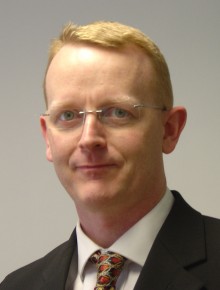
Pete Weatherby QC
Weatherby spoke of the palpable imbalance between State and non-state core participants. The former have all the information and the material, the latter have next to none. This is the very reverse of how a healthy public inquiry should be. The State should be compelled to show their hand, but have largely chosen not to.
That an Inquiry established to shed light on the secretive, undercover activities of the police against ordinary citizens, should itself perpetuate secrecy and obfuscation is beyond irony. This undermines trust, and also promotes failure.
Instead of seeking to side-line non state core participants, or to keep them uninformed, this Inquiry should embrace their knowledge and actively seek out their assistance.
Without their scrutiny, their full and effective participation, the Inquiry may assume that the evidence produced by the spycops and their managers is truthful, correct and reliable, and it will fail to get to the truth.
A public inquiry should be independent and rigorous, not deference to a State narrative, especially not one hell-bent on secrecy, on distortion, and on covering up its wrongdoing.
NOT ASKING FOR THE TRUTH
We have asked the Chair – back in 2019, and ever since – to require the State core participants to provide position statements, that ‘set out their stall’, by this stage of the Inquiry, to hold their hands up to what went wrong, and perhaps even apologise.
Sir John Mitting has the power to make such requests, but has refused to do so, despite his legal duty to maximise openness and disclosure (section 18 of the Inquiries Act), to act in the public interest and with candour.
The Chairs of other current Inquiries – including Grenfell and Manchester Arena – have insisted on position statements and specified the issues to be addressed in them.
The Met claimed just last week that “the Met would assist the Inquiry in every way it can”. Yet they do not intend to comment on the evidence until the very end of the process, many more years down the line. This is not assisting, or acting in the public interest; it only serves to defend the Met.
The police have had plenty of time to examine their own behaviour and, by now, really should be able to admit to their wrong-doings.
The Chair could compel the Met to provide a chronology, and more details of the deployments, who was involved and whether the Met now believes they were justified or not – this would save time and resources – but instead he seems to take the police at their word when they say they no longer use spycops for ‘counter-subversion’, and not insist on answers even to his own questions.
SWAGGERING ARROGANCE
How can all this be described as ‘helping the Inquiry’? This is the swaggering arrogance of an institution which cannot see beyond its own interests, a public body that is hopelessly institutionally defensive, that puts its own reputation above the public interest.
Candour is the oxygen of justice. This Inquiry has two choices: it can either back off, and let the police see what they can get away with, or it can step up, be more robust, and demand position statements.
It’s not just Mitting who wants answers; the core participants and the wider public need them, and are entitled to them.
The delays have already caused huge distress to those involved. Why not save time and money by compelling the State bodies to tell us all: Which undercover operations will they defend? Which will they admit were wrong? Taking this common-sense approach could help the Inquiry gain a valuable commodity – the confidence of non state core participants.
WON’T ADMIT WHAT THEY KNOW
During the last five years, the Met must surely have looked into the deceitful relationships that the spycops formed. Why is it so difficult for them to come clean about the extent of this? Why won’t they shine a light on these practices? And why will the Inquiry not require them to do so?
The Met have already conceded that this Inquiry is likely to find that some deployments were ‘not justifiable’. They must have reached this conclusion for themselves, and in that case they should be able to tell us more details.
Let the police provide their justifications. Let them explain to the public why the mass infiltration of campaign groups for over 50 years was justified. Let them tell us why they infiltrated a clown movement, or a samba band. Surely this is the correct starting point for any investigation into these abuses?
The State should be made to tell us what lessons they have learnt, and what they have undertaken never to do again.
Any pretence that ‘political policing’ only began with the Special Demonstration Squad in 1968 is wrong. The pretence that the police are ‘neutral’ is wrong. Political policing doesn’t just happen elsewhere.
The substantial violations of civil and political rights, and the individual human rights of those involved, are the same as we see in authoritarian regimes around the world.
The Inquiry should remind itself of the rhetoric used by repressive regimes around the world, which seek to silence political voices, which challenge the official narrative, while pretending to respect international human rights norms, including freedom of expression and assembly, and respect for personal autonomy.
HISTORIC WRONGS
Last week we learnt that the likes of the Croydon Libertarians and the Women’s Liberation Movement were spied on in the early 1970s, but this does not ‘beggar belief’.
It is well-documented that the women’s suffrage movement was targeted by spycops. Would the police now seek to justify the State’s infiltration of women campaigning for the right to vote, of anti-slavery campaigns in the 19th century, or other suffrage campaigns, from Peterloo to the Chartists?
Why are these more recent protestors – for nuclear disarmament, against fracking, against road-building and against hospital closures – fair game?
Dissenters are often the drivers of social change. Slavery was abolished as a result of mass campaigns, building on and amplifying slave revolts. Protest and radical dissent has always involved friction with the State, and the State uses this form of policing to undermine that dissent.
The suffragettes and the slavery abolitionists were on the right side of history, and so are those who oppose racism, fox-hunting, and illegal or immoral wars today. The institutional racism of the police, identified and campaigned against by the Newham Monitoring Project (NMP), is now broadly recognised. Though, as this Inquiry illustrates, it remains as entrenched as ever.
DISSENT ISN’T MEANT TO BE CONVENIENT
Civil rights don’t exist to protect those who are comfortable complying with the status quo. They’re not needed for that; they’re a bulwark against authoritarianism.
Demonstrations and protests are often perceived to be a nuisance, or inconvenient, or tiresome, by those who are unsympathetic to their aims. However, freedom of expression is a human right. Citizens don’t need the permission of the police to protest.
In response to the claim made at the Inquiry last week by Oliver Sanders QC, representing the majority of former spycops, it is not ‘totalitarian’ to do what the NMP have done: to call out institutional police racism, or to protect their community from racist attacks. The police claim neutrality, but it was mainly progressive, social justice and left-wing groups that were targeted by the spycops units.
It is not for any limb of the State to insert itself into, curtail or spy on political and social justice activists, nor insert itself into the minutiae of peoples’ lives because they disagree with government policy or campaign to change the law or for a better society.
Lord Hoffman stated that ‘civil disobedience on conscientious grounds has a long and honourable history in this country,’ and went on to recognise that history sometimes vindicated such activism. He talked of ‘conventions’ on both sides: ‘protesters behave with a sense of proportion, and police and prosecutors, on the other hand, behave with restraint’. But what restraint have the spycops shown?
Weatherby then explained more about the core participants he represents.
NEWHAM MONITORING PROJECT
Newham Monitoring Project was established in 1980, by Black activists & white anti-racists, to fight racism in East London. This included racism perpetrated by the police, and the police’s failure to properly investigate racist murders, like that of Akhtar Ali Baig.
In NMP’s own words:
“For NMP the term ‘Black’ was a colour of resistance; it included African, Caribbean, Asian and all other ‘people of colour’ in a political sense. Our enemy was a political enemy which oppressed across Black communities. We recognised the nature of that enemy and the need for unity in combatting it. Whilst we did not ignore the cultural differences which these days increasingly appear to divide the community, we rejected the way ethnicity was used to marginalise our communities”.
In its very earliest incarnation NMP was to be purely a resource for the community through which to collate and disseminate information about the nature and scale of racist violence in Newham. This limited role was very quickly overtaken by the political reality of racist violence. Racism and racist violence are politicising phenomena. Those who experience them are not passive recipients of the violence and the hatred. The experience radicalises and politicises.
NMP developed its political analysis, its understanding of how race and class were linked, and grew over the years. They were well-known and respected for their work, which included combatting racist violence around the home, and defending members of the community from criminalisation. Was this what made the spycops take an interest? NMP have no idea, as they have not been provided with any information as yet.
NMP also countered fascist attacks; less organised, ‘casual’, racist violence from white football gangs; and police racism and violence, including stop and search and the replacement of the ‘sus’ laws with low level Public Order Act prosecutions. Was this the reason they were infiltrated? Because they challenged the police’s wrong-doing?
They articulated and exposed the institutional racism of the police (and other public bodies) long before the Macpherson Inquiry. They highlighted police corruption, they called out police racism. Were they infiltrated because their work threatened to damage the police’s reputation? Were they targeted because they were a Black-led organisation?
Every annual report produced by NMP was sent to the local Newham Commander. These should have already been supplied to this Inquiry, if the Met have upheld their disclosure duties.
Like other non state core participants, NMP are deeply frustrated about the lack of disclosure. What might it show? Did the spycops infiltrate NMP in order to gather information about other justice campaigns? They were connected to many campaigns, some of which are also core participants, like the Lawrence family.
The local police disliked, even hated, NMP. They exposed ‘community policing’ as a lie, at odds with the truth how racialised communities were policed. In the 1980s and 1990s there was an “extraordinary” lack of police accountability, and police violence was routine. The Black Lives Matter movement of this century shows that the structural issues highlighted by NMP haven’t gone away. To what extent is that due to spycops undermining the work of groups like NMP?
HUNT SABOTEURS ASSOCIATION
The Hunt Saboteurs Association (HSA) has campaigned against bloodsports since 1963, mainly by disrupting hunts.
Seemingly vindicated by the Hunting Act 2004, which banned the hunting of wild mammals with dogs, the HSA’s work has been forced to continue due to widespread flouting of the ban, and the badger cull.
The reasons why the HSA was targeted by spycops remain unclear. Was this due to political pressure, given the quintessentially ‘Establishment’ activity of fox hunting, and the status of those who support it? Or was it because the police sought to conflate the disruption of hunts – civil disobedience – with ‘violent extremism’?
There is a long history of violence, including serious violence, and harassment from hunt supporters against HSA activists. Even the SDS Tradecraft Manual contains a complaint from one undercover officer about the way in which his uniformed colleagues treated animal rights activists.
No fewer than nine spycops are now confirmed to have infiltrated the HSA, in the 19 years between 1983 and 2002. “The HSA doubt that they have been spared the attentions of the police before and after this time.
The targeting of a group like the HSA, who tended to use lawful tactics, cannot be justified. There is widespread public support for their main aim, which is why the law was eventually changed.
Why were they infiltrated by spycops? Was this done to disrupt and derail their efforts to change the law? Or to provide “n easy gateway for spycops to spy on other groups and individuals? Is this justifiable?
Another issue raised was miscarriages of justice. It appears that information supplied by spycops led to the arrests of hunt saboteurs. They failed to prevent (or prosecute) violence on the part of hunt supporters.
Were undercover officers told to look the other way? Was their involvement covered up? Did they encourage illegal activity as agents provocateurs? Did they supply hunt sabs’ personal details for illegal blacklisting?
Some of the officers who infiltrated hunt sab groups also deceived women into intimate relationships, and other activists into close personal ‘friendships’, even holidaying abroad with them (presumably under their false aliases, using false passports).
EMILY APPLE
Emily Apple has been an activist all of her adult life, involved in numerous campaigns. She was a founding member of the Network for Police Monitoring (Netpol) and of FITwatch (set up to counter the police’s ‘Forward Intelligence Teams’).
She has been arrested countless times, typically without basis. She was involved in campaigning against the arms trade (including the biannual DSEI arms fair), against war, and for environmental causes (including the Earth First! network).
She has encountered at least seven spycops while active in these groups. There are serious issues related to Apple’s arrests and legal privilege.
Apple was not just spied on by these police officers. During her time working with the Campaign Against the Arms Trade, she was also reported on by Martin Hogbin, a corporate spy, employed by BAe Systems.
RHYTHMS OF RESISTANCE/ NICOLA BENGE
Nicola Benge is a core participant in her own right, as well as being part of Rhythms of Resistance (RoR), a samba band that played at numerous protests in the 2000s. RoR still have no idea who spied on them, nor when, but suspect that they too might have been considered an easy gateway for spycops who wished to target other groups.
Benge was involved in other groups that are known to have been spied on in some way, for example the Advisory Service for Squatters’. But, like RoR, they have not yet been given any disclosure or details by this Inquiry either. She remains completely in the dark, as do the other musicians.
GLOBALISE RESISTANCE/ GUY TAYLOR
Guy Taylor worked as an organiser for Globalise Resistance between 2001-07. Founded with the aim of bridging the gap between the trade union movement and other activists, this network was infiltrated by HN118, known to them as ‘Simon Wellings‘.
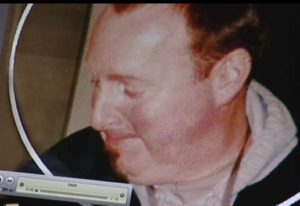
Spycop Simon Wellings
Wellings deceived Taylor into what he believed to be a close personal friendship. As well as making the orange tank, Wellings got himself elected onto the group’s steering committee, and acted as the group’s photographer (presumably an ideal opportunity for his handlers to collect photos of many activists)
He travelled to other countries to attend protests with the group – including the United States, Spain and France – making a mockery of this Inquiry’s remit being limited to events in England and Wales.
He had access to, and influence over, Globalise Resistance itself but also other connected campaigns and groups. What did he feed back about trade unions – including the Communications Workers Union and Unison – and the Green Party? What was the justification for this? Why was he allowed to assume such a prominent role in the organisation? To what extent did he influence and derail the group? Why was he permitted to travel overseas?
Ultimately, Wellings was exposed by his own error – he mistakenly left a message on an activist’s phone, with a recording of a conversation between him and his spycops handlers.
Despite making several ‘Subject Access Requests’ to the Met, Taylor still has no disclosure relating to Wellings, which casts significant doubt on the police’s disclosure integrity.
‘NRO’
‘NRO’ is a medical professional and an academic. He is a deeply committed and life-long campaigner on matters related to social justice and freedom of expression. He wants to know why he was targeted.
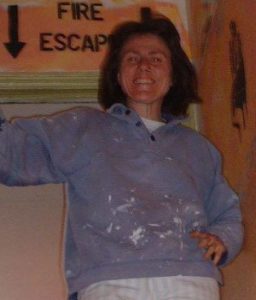
Spycop Jackie Anderson
In the 2000s, he was part of a broadly anti-capitalist group known as the WOMBLES (a distinctive presence at protests, they wore white overalls, padding & helmets to protect them from police violence). He knows that he was spied on by EN32 (‘Rod Richardson‘) and HN77 (‘Jackie Anderson‘) during his time with the WOMBLES.
‘NRO’ was also involved with Aktivix, who provide web services for activists, and Indymedia, an open, independent reporting/ publishing network used by activists.
Indymedia was set up as an alternative to the corporate media. At its peak, the network consisted of around 150 local collectives, spread across the globe. UK Indymedia had its servers repeatedly seized by the police.
‘NRO’ has questions – about spycops’ involvement in these server seizures, about the online surveillance of activists, about the spycops’ use of platforms such as Indymedia. Spycops used to post news and comments on Indymedia, and it is believed that spycops used Indymedia to post fake news stories (prsumably to undermine campaigns, or perhaps justify their deployments) , as well as to gather information.
INDRA DONFRANCESCO, MEGAN & MORGANA DONFRANCESCO
Indra Donfranceso has been active in environmental groups, including Earth First!, for most of her adult life. Morgana and Megan are her daughters; they attended numerous protests, campaigns, meetings, and related social events, throughout their childhood.
Mark Kennedy befriended the family in 2003, and was close to all three of them. He volunteered to be the photographer at her wedding in 2007, and they shared a 40th birthday party with others two years later. What happened to the photos?
Megan and Morgana both thought of ‘Mark Stone’ as an uncle figure. Learning that he was in fact an undercover officer has affected them badly. One of the women Kennedy deceived into a relationship, ‘Lisa‘, was a close friend of Indra’s.
How was befriending a family, including young children, justifiable? Are these the actions of a responsible, accountable police force?
Such corrupt and depraved behaviour shames not just the officer but those who organised and those who facilitated the system, as well as those who still seek to make excuses for the spycops now.
CLANDESTINE INSURGENT REBEL CLOWN ARMY (CIRCA)/ JENNIFER VERSON
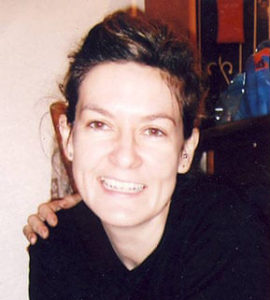
Spycop ‘Lynn Watson’
This network was formed in 2003, by writers, educators, performing artists and other activists, in response to a State visit by George W Bush, and the war in Iraq. They obtained Arts Council funding to tour the UK and put on performances and workshops. They used humour and performance to make their points and sometimes mock the police.
For three years, Jennifer Verson was involved in training up new clowns, including at least one spycop, EN34, known as ‘Lynn Watson‘. CIRCA had close links with other groups, including RoR and the Dissent Network (opposing the G8 Summit in 2005).
How on earth could anyone believe that infiltrating a performing arts group was justified? It may seem obvious to us that this was a huge waste of public funds, but the fact that this was not obvious to those running the spycops unit must not be overlooked.
INTERNATIONAL SOLIDARITY MOVEMENT (ISM)
The International Solidarity Movement (ISM) is a Palestinian-led group, with branches around the world. ISM sends volunteers with the privilege of a foreign passport to Palestine, to bear witness and document, and where possible protest Palestinians from human rights violations, harassment and persecution.

Spycop Rob Harrison
The group’s activities in England and Wales just involved leafleting and stalls. What was the justification for surveillance? There is a suspicion that information gathered by the spycops may well have been passed to foreign agencies.
Asa Winstanley, an investigative journalist who writes about Palestine, got involved in ISM in 2004. Atif Choudhury and ‘MCD’ were also associated with the London ISM group. All three were devastated and deeply traumatised to learn about the infiltration of the group by spycop HN118 ‘Rob Harrison‘.
Choudhury considered ‘Harrison’ a close friend – he even DJed at the wedding of Choudhury’s sister. Harrison’s depravity did not stop there. He used his connection to Choudhury to deceive a young neighbour, ‘Maya’, into a sexual relationship, as we heard yesterday.
MCD’s activism has been motivated by her Quaker faith and commitment to active pacifism. All three of these core participants struggle to understand how this intrusion into their lives could possibly be justified.
‘VSP’
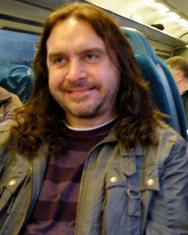
Spycop ‘Marco Jacobs’
‘VSP’ has been involved in many campaigns and groups, including the Cardiff Anarchist Network (CAN). She has been arrested many times, and has been targeted by both overt and covert policing. She has been strip-searched, and mocked and jeered by officers whilst naked, and as a result has received several settlements from the police.
She was spied on by ‘EN1’ (Marco Jacobs) and Mark Kennedy. ‘Jacobs’ became close to VSP and her family, and initiated two sexual relationships with female friends of hers. He sowed so much disruption and division within CAN that the group stopped functioning.
He often put himself forward to travel abroad (sometimes alongside Kennedy) and represent CAN at activist meetings. Did they sabotage these meetings?
WHEN DO WE GET ANSWERS?
The victims have given up significant details of their lives and activities, in their core participancy applications, and in the written Opening Statement. However, none of them are mentioned in the Opening Statements of the police or the Counsel to the Inquiry, and they have yet to be provided with any further details of the spying on them. How much longer must they wait?
There was, and is, no justification for the undercover operations which intruded into their lives, their families and careers, nor is there any justification for the Inquiry to delay them being provided with information.
The Newham Monitoring Project pull no punches in their written Annex:
“It is essential that it be appreciated that we have no faith in this Inquiry. Characterised as it is by extraordinary secrecy, a total lack of accountability and transparency, all aggravated by the absence of adequate representation and constant delay, we are confident this is not a forum through which the actions of the police can be properly explored and scrutinised.
“Those quaintly described as ‘core participants’ are engaged, tantalised, and seduced by the promise of disclosure. This interest will, we believe, remain wholly unrequited. Any meaningful disclosure is unlikely to materialise in any real sense because the overriding priority appears to be the protection of those officers deployed. In any event, we have no faith that the relevant records have not already been destroyed. Yet the illusion must be maintained because the continued involvement of the ‘core participants’ adds infinitely to the credibility of a process that is already bankrupt.”
The accompanying written opening statement from Pete Weatherby QC on behalf of Newham Monitoring Project & Core Participants who are Political, Social & environmental activists
